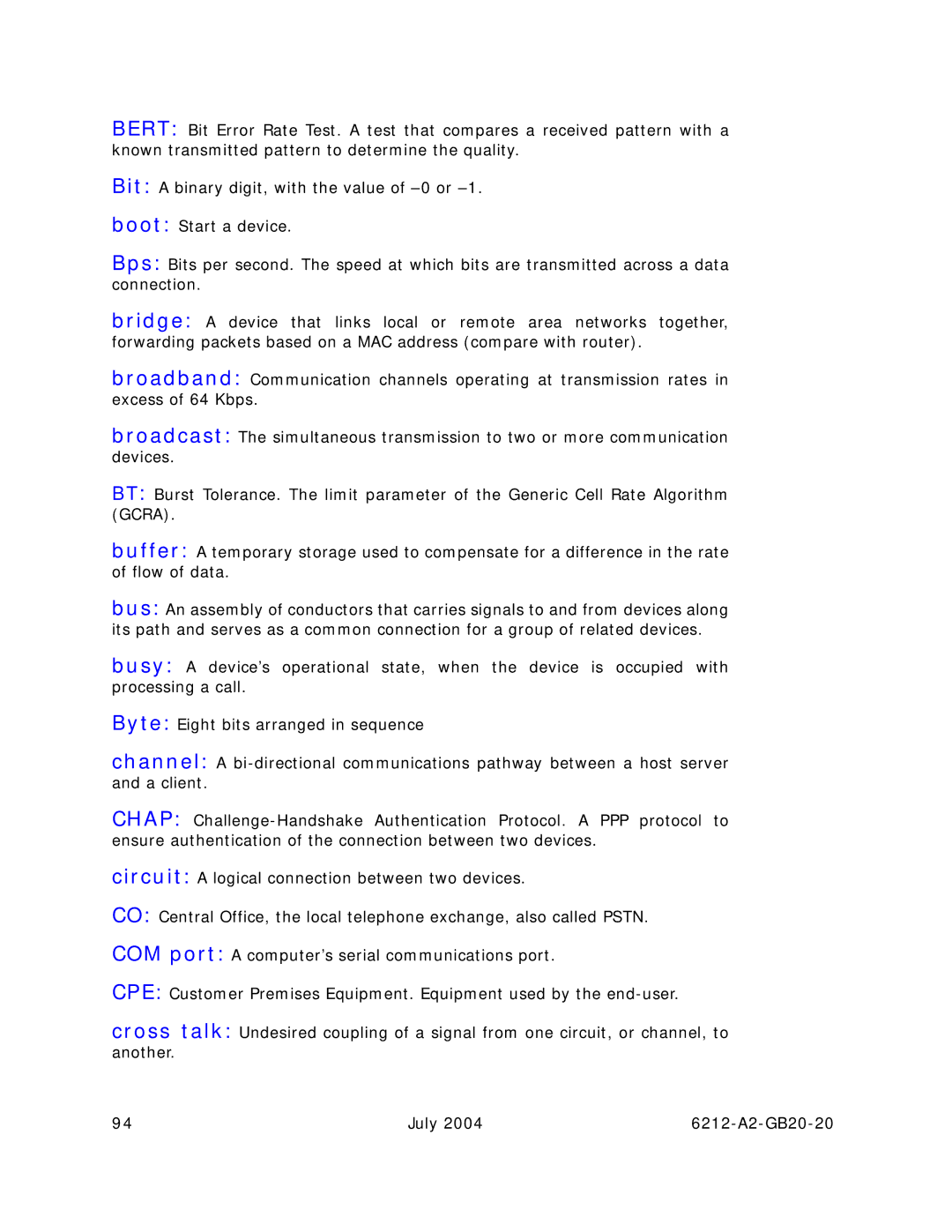BERT: Bit Error Rate Test. A test that compares a received pattern with a known transmitted pattern to determine the quality.
Bit: A binary digit, with the value of
boot: Start a device.
Bps: Bits per second. The speed at which bits are transmitted across a data connection.
bridge: A device that links local or remote area networks together, forwarding packets based on a MAC address (compare with router).
broadband: Communication channels operating at transmission rates in excess of 64 Kbps.
broadcast: The simultaneous transmission to two or more communication devices.
BT: Burst Tolerance. The limit parameter of the Generic Cell Rate Algorithm (GCRA).
buffer: A temporary storage used to compensate for a difference in the rate of flow of data.
bus: An assembly of conductors that carries signals to and from devices along its path and serves as a common connection for a group of related devices.
busy: A device’s operational state, when the device is occupied with processing a call.
Byte: Eight bits arranged in sequence
channel: A
CHAP:
circuit: A logical connection between two devices.
CO: Central Office, the local telephone exchange, also called PSTN.
COM port: A computer’s serial communications port.
CPE: Customer Premises Equipment. Equipment used by the
cross talk: Undesired coupling of a signal from one circuit, or channel, to another.
94 | July 2004 |
